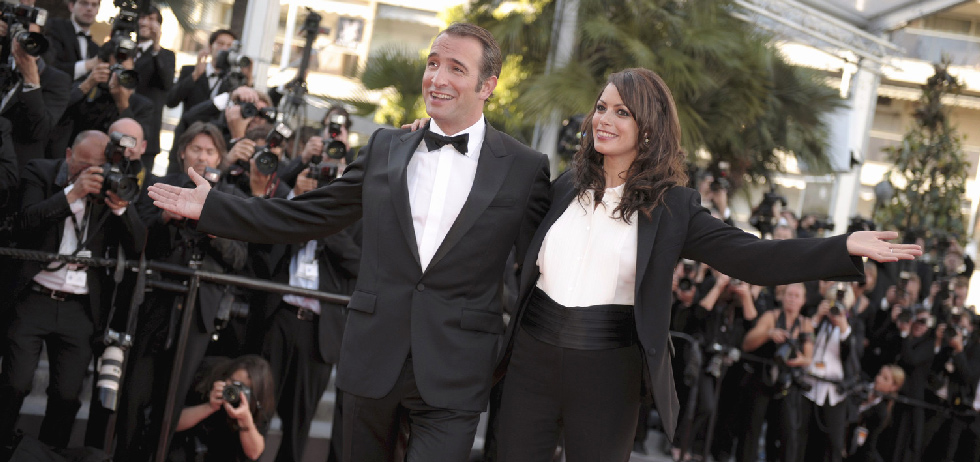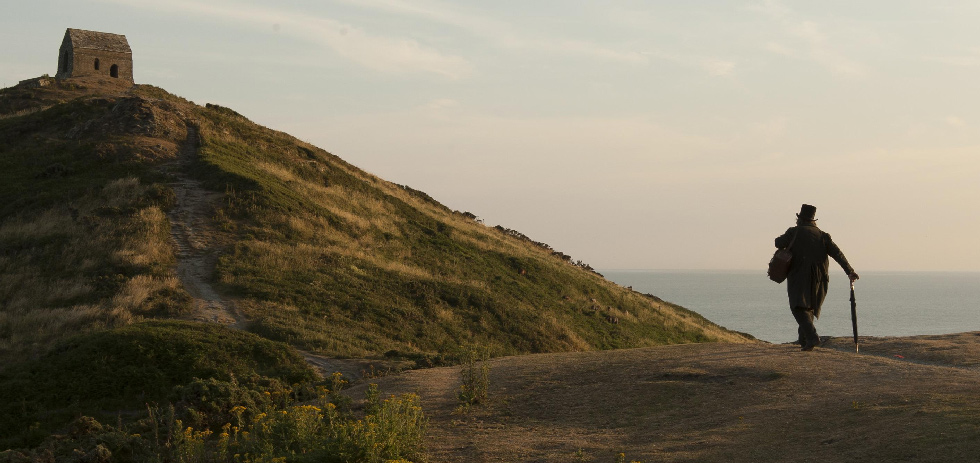It is inevitable that at some point over the next two weeks, the Oscar tipping will begin. It has, to some extent, already begun – with Sundance and Berlin already out of the way, there are several titles that are already generating that elusive quality, “Oscar Buzz”. Cannes, however, is where it really takes off – early front runners are cemented, dark horses are identified and punters start lining up the odds. It’s the first opportunity to test the staying power of those titles that have emerged from Berlin and Sundance, and the first showing of several films from established filmmakers to put them in the running. Over the next week the festival will also see a few titles weeded out, abandoned by the jury and panned by the critics – this too has already begun with the lacklustre critical response to Wednesday’s opening film, Grace of Monaco.
But what is the real connection between Cannes, in May, and the Oscars, in February or March of the following year? This week will see critics, distributors and sales agents all dropping the “O” word, some vying for titles, some pushing sales and some trying to be the first to spot this year’s Academy Award winner. While the existence of a connection is undeniable, there is no guarantee that it will take the same form from one year to the next. There are a very few things you can count on in the film industry, and Cannes and the Oscars are rarely among them.
The Sundance Darling
As Sundance picks up momentum and becomes part of the established festival circuit, losing that new kid on the block reputation it has maintained for so long, it becomes a more regular launch pad for Oscar contenders.1 Recent years have seen at least one title from the Utah-based festival emerge as an earlier, indie frontrunner for the Academy Awards when it goes on to play at Cannes. In 2012 we saw Beasts of the Southern Wild make the jump, and 2013’s Fruitvale Station looked placed to make a real challenge, winning the Prix de l’avenir in the Un Certain Regard competition – the “future prize” that identified Ryan Coogler’s film as one to watch. This year’s Sundance pick looks to be Whiplash, Damien Chazelle’s film about a young jazz drummer and his tutor, which won the audience and jury prizes at Sundance this year and has been selected for Cannes’ Director’s Fortnight this year.
In the way of all things, this is anything but a guarantee: Fruitvale looked set last year to follow in the footsteps of Beasts, all the way up to the Independent Spirit Awards, before being passed over entirely for the Academy Awards. Prior to Beasts, Sundance darlings included films like Little Miss Sunshine and Juno which both won the Academy Award for the Best Original Screenplay without the assistance of a Cannes screening. Given that Juno, Sunshine, and Beasts were all nominated for Best Motion Picture, there is little to take away from this in terms of the value of Cannes in launching an Oscar winner from the Sundance pool, although the presence of at least one Sundance entrant in the Cannes line-up is becoming more of a regular occurrence.
Oscars and Subtitles
Over the past two years, Cannes has been essential in launching the winner of the Academy Award for the Best Foreign Language Film: both Paolo Sorrentino’s The Great Beauty and Michael Haneke’s Amour premiered In Competition at Cannes. It’s hardly as simple as that though – The Great Beauty was, in a way, able to position itself as a descendant of Federico Fellini’s La Dolce Vita, generating an enormous critical affection for Sorrentino’s film and nostalgia for Fellini’s. Out of Haneke’s filmography, Amour is probably the closest he has, or will come, to an “Oscar” film – or rather, to a film that the Academy could nominate and vote for. It’s also worth keeping in mind the average age of an Academy member – in 2012, the Los Angeles Times conducted a study that found the median age of Academy members to be 62, making Haneke’s film about an elderly couple in Paris and Sorrentino’s exploration of an ageing writer and socialite in Rome, even more relevant.
The further back one goes, the more tenuous the connection between Cannes and the Oscars becomes – the 2011 winner, Asghar Farhadi’s A Separation, premiered at the Fajr International Film Festival in Tehran, before screening in Competition at Berlin, where it won the Golden Bear. In 2010, Susanne Bier’s In A Better World opened initially theatrically in Denmark, before making its world premier at the Toronto International Film Festival and going on the win at the Oscars. Moreover, Cannes can often identify red herrings – contenders that, come nominations in January of the next year, are passed over or have disappeared from sight. Consider 2013’s Blue Is The Warmest Colour, which generated an enormous amount of Oscar buzz when it won the Palme d’Or. Many had Blue tipped as the frontrunner for the Best Foreign Language film, only to see it not even nominated. It’s possible that the Cannes selection committee and jury are becoming more aligned with the voting membership of the Academy, although more evidence than two years of agreement is required. It is however worth tracking this year’s Official Selection to see whether they last til nominations on the 15th of January next year. Until then, there is an entire festival circuit remaining, during which new contenders may emerge. Toronto International Film Festival is a crucial part of the festival circuit, having premiered both In A Better World and the 2009 Best Foreign Language winner The Secret In Their Eyes, and some of the Cannes titles may disappear before the Oscar nominations.

Bob and Harvey
In an industry full of personalities, it’s something of an achievement to be known for yours. Even the least industry-savvy cinemagoers tend to have heard of the Weinsteins – at least for their explosive personalities, but also their alleged ability to pick Oscar winners. In 2011, The Weinstein Company picked up at Cannes The Artist, a small silent black-and-white French film that no one seemed to have heard of, but had been generally well-received at the festival, with its lead actor Jean Dujardin winning the Best Actor Award. No one outside of France had really heard of Dujardin, his costar Berenice Bejo or their director, Michel Hazanavicius. In France, they were relatively popular for their collaboration on the spy parody OSS 117: Cairo, Nest of Spies, and its sequel OSS 117: Lost in Rio, which were modest box office successes but hardly serious filmmaking. Yet the Academy Awards the following year saw it nominated for ten awards, winning five, including Best Director and Best Actor. A lot of observers attribute the meteoritic rise of The Artist to the Weinsteins’ support, along with its glorification of old Hollywood and generally nostalgic feel.
The Weinsteins were also the distributing force behind the 2012 Academy darling, Silver Linings Playbook, and last years August: Osage County,Philomena, and countless other Oscar contenders that didn’t necessarily premiere at Cannes nor require the formidable force of the Weinsteins to make it to the Kodak Theatre. But The Artist demonstrates the ability of both Cannes and the Weinsteins to push a film into the public consciousness all the way to the Oscars.
And the first nominee is?
On Thursday the 15th of May, mere hours after the opening night gala, Deadline announced that Mike Leigh’s Mr Turner, which tells the story of the 18th century painter, was an “instant Oscar contender”. The Guardian’s Peter Bradshaw called it “glorious”, “funny and visually immaculate” “richly and immediately enjoyable, hitting its satisfying stride right away”. Leigh has previously won the Palme d’Or at Cannes for his 1996 film Secret & Lies, and has screened in the festival four times previously. Sony Pictures Classics has picked up the film for US distribution, announcing its release date already for December 19 – perfectly placed in the Oscar corridor to keep it fresh in audiences’ minds despite its early premiere at Cannes. Deadline are also predicting a best actor nomination for Timothy Spall and a best supporting actress nomination for Marion Bailey. Given that it’s a period film, it’s also likely to get nominated for costume design, make up and hairstyling. Leigh may also find himself in a similar position to Haneke in 2012 – a well-established and well-known director and Cannes regular who has yet to win an Oscar.
It’s worth noting that Sony Pictures Classics are experts in Cannes-Oscar releases, having released six of the last ten Foreign Language winners. They’ve also picked up Whiplash (which should give it some momentum going into the festival circuit), Bennett Miller’s Foxcatcher, Bertrand Bonello’s Saint Laurent, Damian Szifron’s Wild Tales, Gabe Polsky’s Red Army and Zhang Yimou’s Going Home.
With the bulk of the festival still in wait, and plenty of films yet to screen, this is hardly the last time we’ll hear such ambitious predictions. The longevity of the films and their critical supporters remains to be seen.
